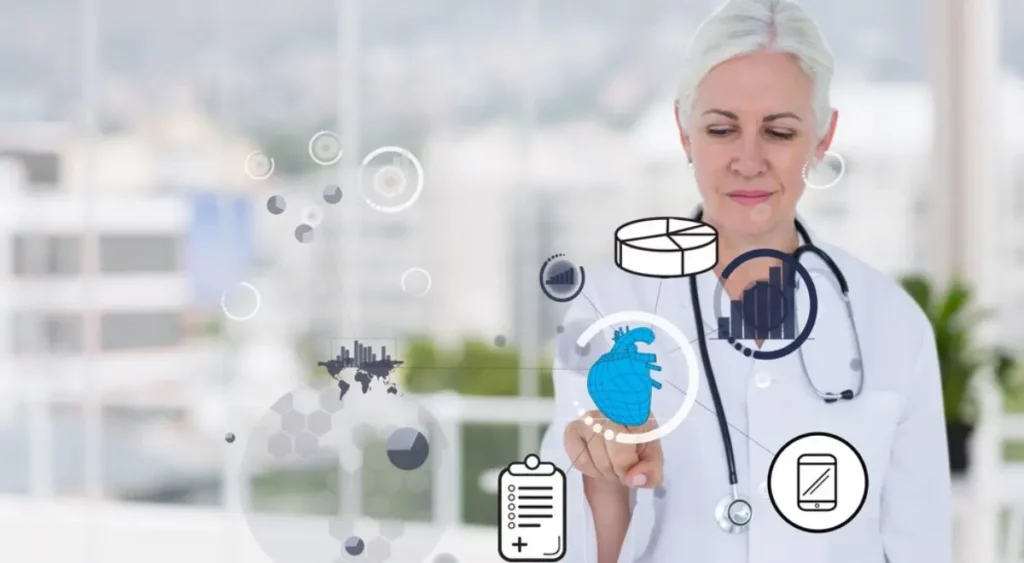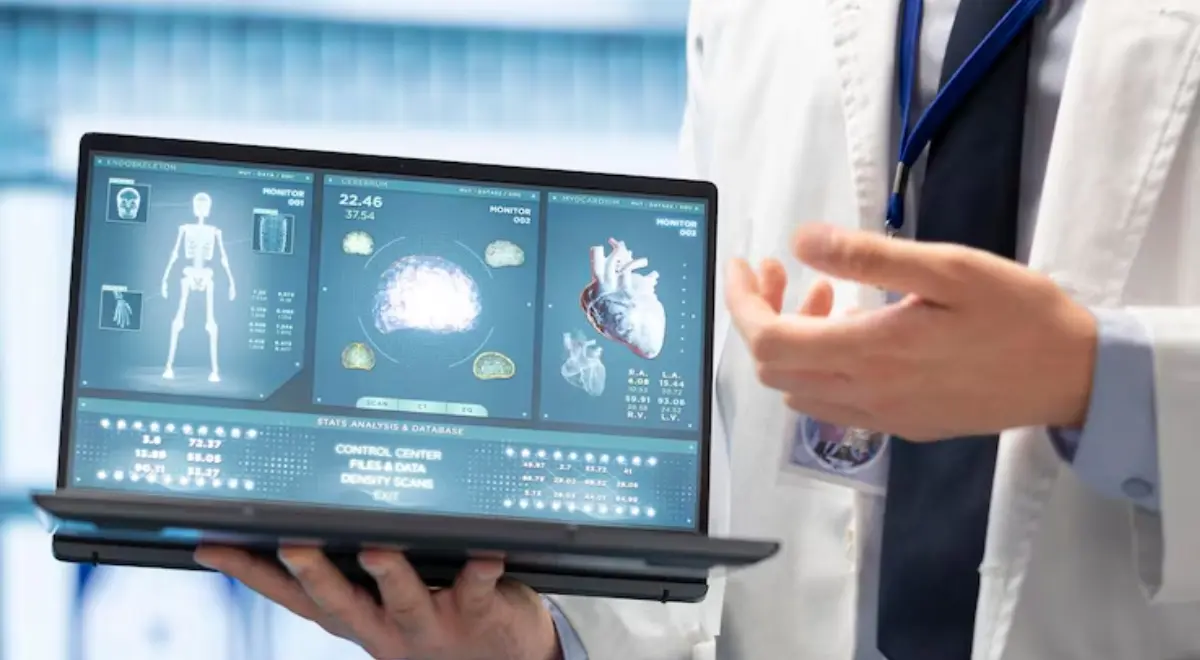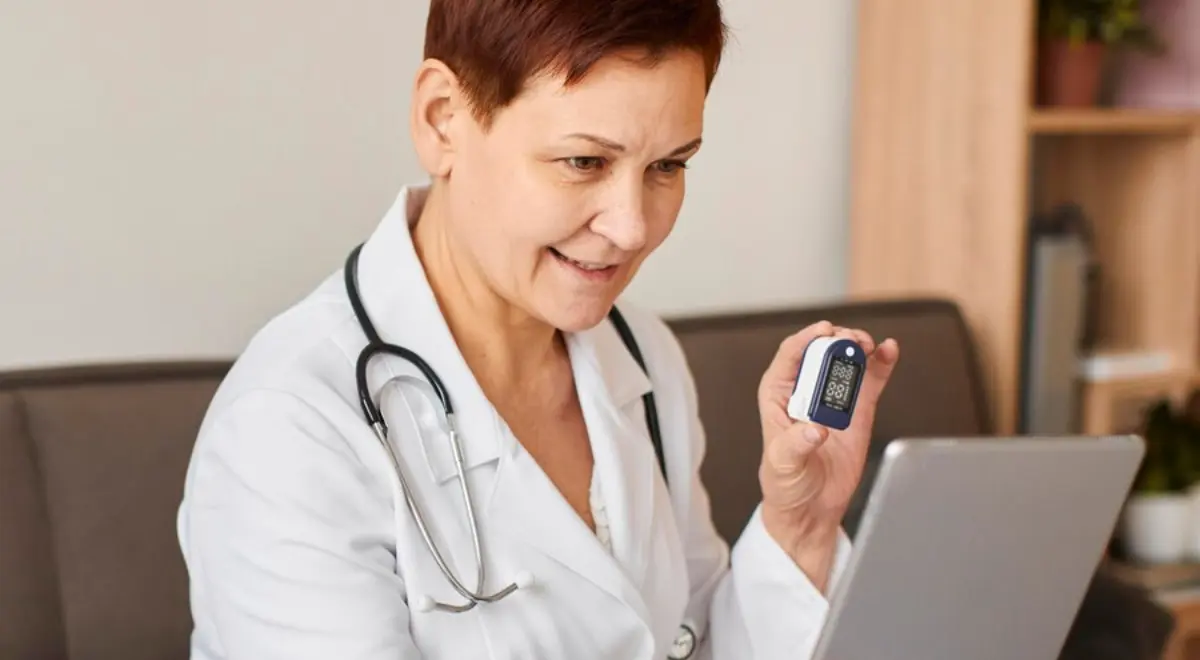Remote Care Programs Covered By HealthArc’s Digital Health Platform

With the emergence of AI technology and digital health platforms, healthcare is gradually shifting beyond the four walls of the hospital, making in-home or remote care convenient and accessible. There has been tremendous progress in the adoption of digital health technologies and remote care programs such as Remote Patient Monitoring (RPM), Remote Therapeutic Monitoring (RTM), Chronic Care Management (CCM), Transitional Care Management (TCM), and Principal Care Management (PCM) are becoming more accessible for chronically ill patients.
Table of Contents
ToggleTypes Of Remote Care Programs Supported By HealthArc
Healthcare organizations and providers are implementing various remote care programs to improve clinical processes, efficiency, and overall patient care. But, with so many different programs available for providers, choosing the best one for the patients may seem daunting.
To help make the right choice, it’s important to understand the various remote care programs comprehensively, ranging from their implementation to billing, and diagnostic criteria to patient care.
HealthArc’s all-in-one digital healthcare platform helps practices connect to their patients, optimize reimbursement and minimize documentation with increased clinical efficiency. Our HIPAA compliant software ensures you are adhering to the policies and organized for accurate billing. Our platform supports:
- Remote Patient Monitoring (RPM)
RPM uses digital remote monitoring devices to monitor and collect physiological health data from patients outside of the clinic, such as blood pressure, blood sugar, weight, and oxygen levels. These cellular or Wi-Fi devices securely transfer that data straight to healthcare providers, who monitor a patient’s vital signs in between clinical visits. RPM must be administered by a physician or qualified health care provider (QHCP) who is authorized to bill for emergency medical services.
To generate reimbursements it is medically recommended to use FDA-approved monitoring devices, a minimum requirement of 16 days of readings per 30 days, and require clinical staff to spend at least 20 minutes per month.
- Remote Therapeutic Monitoring (RTM)
RTM is the remote monitoring and management of non-physiological patient data, such as musculoskeletal or respiratory system condition, as well as medication adherence and therapy adherence. Unlike RPM, remote therapeutic monitoring can be obtained by QHCPs, who are not permitted to order and bill E/M services independently. Healthcare professionals who can bill for RTM, include nurse practitioners, physician assistants, physical therapists, speech and language pathologists, occupational therapists, dietitians, clinical social workers, and clinical psychologists.
RTM, like RPM, does not require a specific diagnosis, but it must be declared medically essential, involves usage of FDA-defined Software- as-a-medical (SaMS) device with a minimum of 16 days of patient self reported data each 30 days, and monitoring must be performed by clinical staff for at least 20 minutes each month. RTM and RPM cannot be billed together .
- Chronic Care Management (CCM)
CCM services are provided to Medicare beneficiaries who have two or more chronic health diseases, such as diabetes, hypertension, asthma, CHF, COPD, or pneumonia, and are expected to last at least a year or until death. Chronic care management service often includes non-face-to-face services and care coordination, prescriptions, community resources, and other health-related information.
CCM benefits patients by helping them understand their condition and providing careful monitoring so that medication, treatment plans and other therapies can be modified with timely interventions. Unlike RPM and RTM, no device readings are required.
This service must be ordered by a physician or a qualified health care provider (QHCP) and requires a minimum of 20 minutes per month by clinical staff or 30 minutes by a physician or QHCP. CCM may be billed in conjunction with RPM or RTM. However, time requirements must be met individually.
- Transitional Care Management (TCM)
Transitional Care Management focuses on the post-discharge period when patients transition from a hospital or other healthcare facility to their home or another setting. It aims to support patients during this critical period to reduce the likelihood of readmissions, and complications, and improve overall health outcomes.
Transitional care management is intended to last 30 days, beginning on the date the beneficiary is discharged from the hospital and continuing for the following 29 days. These services can be provided by qualified healthcare professionals, including physicians, non-physician practitioners (NPPs) like certified nurse midwives (CNMs), clinical nurse specialists (CNSs), nurse practitioners (NPs), and physician assistants.
- Principal Care Management (PCM)
PCM provides services to patients who require continuous clinical monitoring and care coordination. Unlike CCM, PCM requires only one complex chronic illness in patients. For example, PCM may be ordered for a patient with uncontrolled diabetes, uncontrolled hypertension, or a high-risk patient with severe asthma who requires frequent hospital readmissions. It may also be recommended to someone with hepatitis C, fibromyalgia, or other complex chronic diseases.
PCM has no device reading requirements, can be ordered by a physician or QHCP, and requires clinical staff, physicians, or QHCPs to spend at least 30 minutes every month.
Embrace The Future Of Remote Care With HealthArc
HealthArc’s remote care programs enable doctors to provide more accessible care, resulting in increased patient engagement, more informed clinical decision-making, and better outcomes.
Our HIPAA compliant software replaces catch-all documents with editable care plan templates featuring checkboxes, allowing practitioners to quickly choose the most relevant goals, barriers (SDOH), symptoms, allergies, medication, preventive care, self-management goals for each patient and having a system in place to ensure success of a remote care program.
Communicate with patients via audio and video calls, SMS, make care plans available to the patient 24/7, re-fill prescriptions, review diagnostics and make referrals using HealthArc. Automatic time tracker ensures that time spent on every patient activity and communication is documented and allocated to the patient.
Healthcare practices can access staff productivity and billing reports, along with a seamless integration with all leading EHRs through HL7 and FHIR capabilities. Book a free demo or call us today at +201 885 5571 to set up a consultation with our experts.
Most recent blogs
Categories
- Advanced Primary Care Management
- Behavioral Health Integration
- Cellular Remote Patient Monitoring
- Chronic Care Management
- Chronic Care Management Billing
- Chronic Care Management CPT Codes
- Chronic Care Management Program
- Chronic Care Management Software
- Digital Health Platform
- Principal Care Management
- Principal Care Management CPT Codes
- Remote Care Programs
- Remote Monitoring Devices
- Remote Patient Care
- Remote Patient Monitoring
- Remote Patient Monitoring Billing
- Remote Patient Monitoring CPT Codes
- Remote Patient Monitoring Devices
- Remote Patient Software
- Remote Therapeutic Monitoring
- Remote Therapeutic Monitoring Billing
- Remote Therapeutic Monitoring CPT Codes
- Telemedicine & RPM
- Transitional Care Management
- Transitional Care Management Billing
- Transitional Care Management CPT Codes
Related Posts
- March 1, 2025 | Read Time: 6 mins
AI in Remote Patient Monitoring: Predictive Analytics, Early Detection, & Personalized Care
- February 25, 2025 | Read Time: 5 mins
Wearable Devices & Their Role in Remote Patient Monitoring
- February 21, 2025 | Read Time: 5 mins






